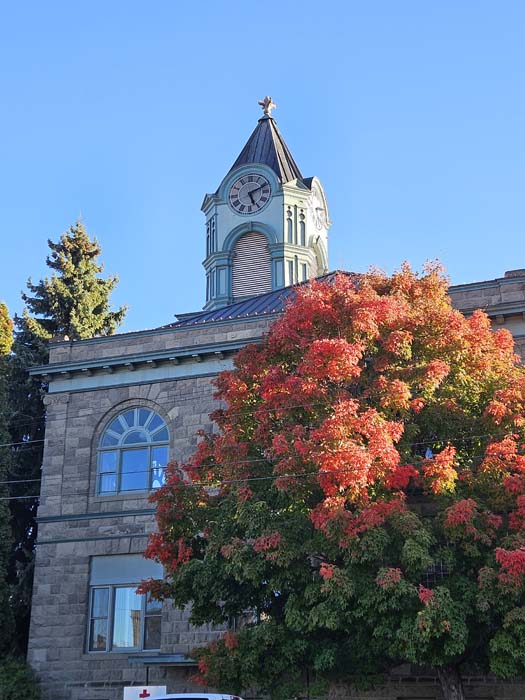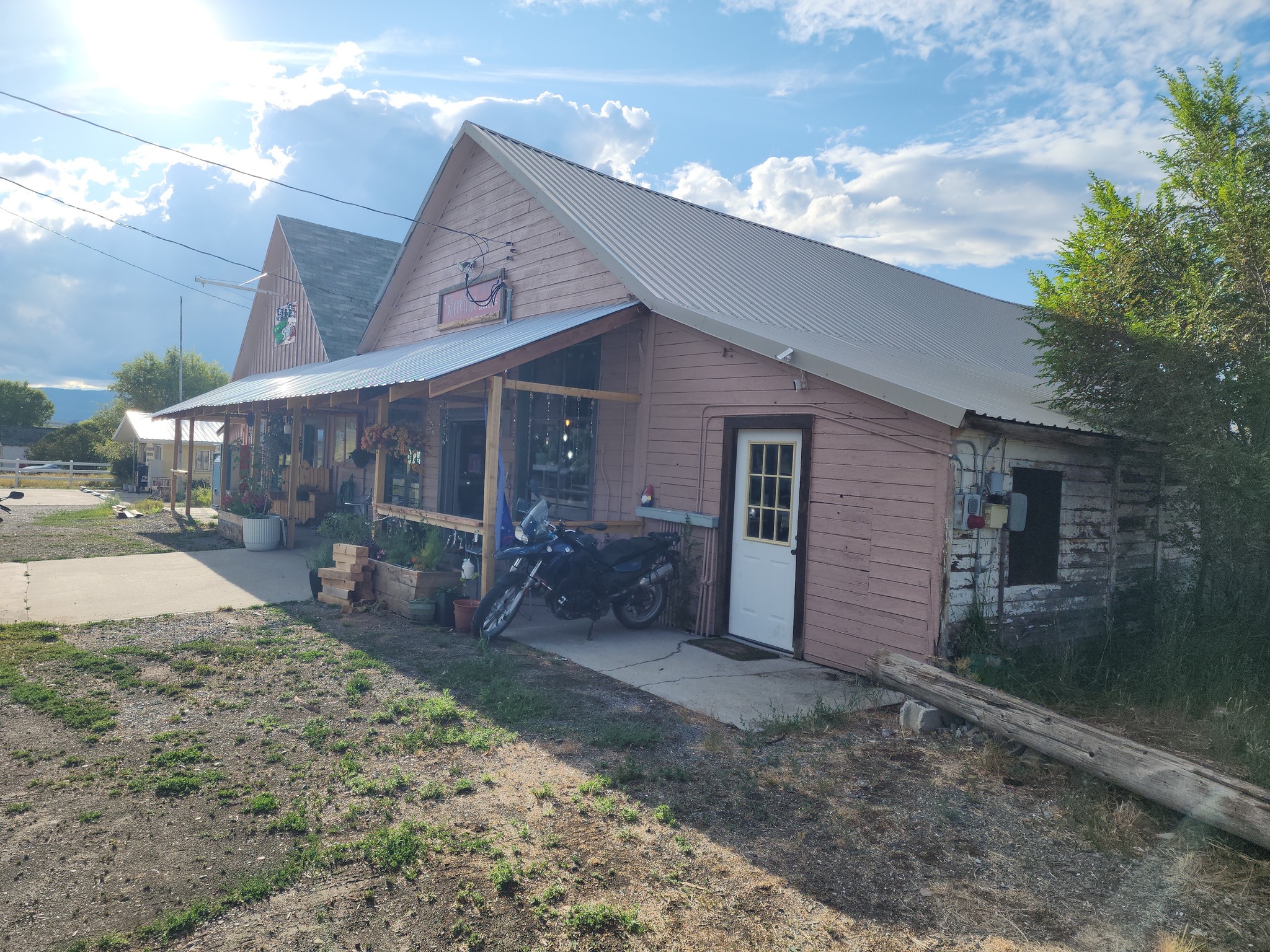Baker City’s proposed budget, for fiscal year starting July 1, has relatively small changes in most departments
Published 9:40 am Wednesday, June 4, 2025

- Baker City Hall.
Baker City’s proposed budget for the fiscal year starting July 1 has relatively small changes from the current budget.
The city’s budget committee, which consists of the seven city councilors and seven residents appointed by councilors, approved the spending plan in late May.
The city council has until June 30 to adopt the budget.
Trending
The proposed budget is available on the city’s website, https://bakercity.com/2155/Finance
The general fund, which includes the police and fire departments, will increase by 1.5%, or $113,000, to $7,382,000.
The police department, the most expensive in the general fund, has a budget of $3,050,000, an increase of 2%.
Most of the budget — about 86% — is for salaries ($1.4 million), retirement contributions ($505,000), health insurance ($431,000), Social Security taxes ($120,000) and workmen’s compensation insurance ($40,000).
The police union’s contract includes a 2.7% raise for union members for the fiscal year starting July 1, according to City Manager Barry Murphy’s budget message to councilors and the budget board.
The budget includes a 4.1% increase in the fire department to $1,916,000. That includes a 3% pay raise for union members through a previously negotiated contract. Salaries, insurance and other benefits make up about 84% of the fire department’s budget.
Trending
The police and fire departments combined comprise about 67% of the general fund.
Other departments within the general fund include administrative services, with salaries, insurance and other benefits totaling $720,000, a slight decrease from $727,000 this fiscal year. This department includes the city manager, human resources manager and city recorder. City council members earn $10 per meeting, to a maximum of $150 per year.
Administrative services also includes the unappropriated ending fund balance — money that can’t be spent during the fiscal year unless the city council approves an amended budget. This balance is budgeted at $1.8 million, an increase from $1.3 million in the current fiscal year.
Other departments within the general fund include cemetery ($221,000, primarily for a contractor with a local company for maintenance); parks ($156,000); airport ($119,000) and planning ($151,000; the city’s contribution to the Baker City/County Planning Department). A new department in the general fund is community/economic development, at $137,000. The community/economic development director has not been hired.
Property taxes are the biggest source of revenue for the general fund. The proposed budget projects $3.38 million in property taxes, up from $3.17 million. Oregon voters have enshrined in the state’s constitution a limit of 3% annual increases in assessed property value — the figure on which tax bills are based. There are exceptions for properties with new buildings or major additions to an existing structure.
General fund revenues also include franchise fees that utilities pay for using public rights-of-way for their lines and pipes — a projected $600,000 from Oregon Trail Electric Cooperative, $210,000 from Cascade Natural Gas, $91,000 from Baker Sanitary Service, $50,000 from Charter Communications and $15,000 from Century Link.
The city also receives a share of the state’s liquor tax (projected at $160,000 for the new budget) and state revenue sharing ($130,000).
One significant change starting July 1 is the city beginning a separate lodging tax, which is paid by guests at motels, bed and breakfasts, vacation rental homes and other lodging. The rate is 7% of the rental rate, the same as the current tax, which is administered by Baker County.
The city budget includes $200,000 in lodging tax revenue for the general fund.
The city has not proposed to end the monthly public safety fee of $10 for homeowners and $20 for businesses, which was imposed starting in June 2024. The fee will bring in about $650,000 for the current fiscal year.
The city has separate funds, outside the general fund, for its water and wastewater departments.
Each is considered an “enterprise” fund, with the main source of revenue being water and sewer bills. The city collects almost $4 million annually in water bills, and about $2 million in wastewater bills. The city uses that money exclusively for the water and wastewater systems, rather than for general fund departments such as police and fire.
Both water and wastewater departments are in solid financial shape, according to Murphy’s budget message.
The water department has a balance of about $4.6 million, and the wastewater department about $4.5 million.
The city uses some of the money for construction projects such as replacing the main water supply line from the city’s watershed in the Elkhorn Mountains, a project that has been ongoing for more than a decade. Typically the city replaces a mile or so of the aging concrete line, which is prone to leaks from its thousands of joints, each summer.
The city isn’t increasing water or wastewater rates for the fiscal year starting July 1.
The city’s street fund, also separate from the general fund, includes as revenue about $770,000 in property taxes as well as about $820,000 from the state gas tax.
The city uses the money for construction such as chip sealing, fog sealing and repaving, as well as snowplowing.









